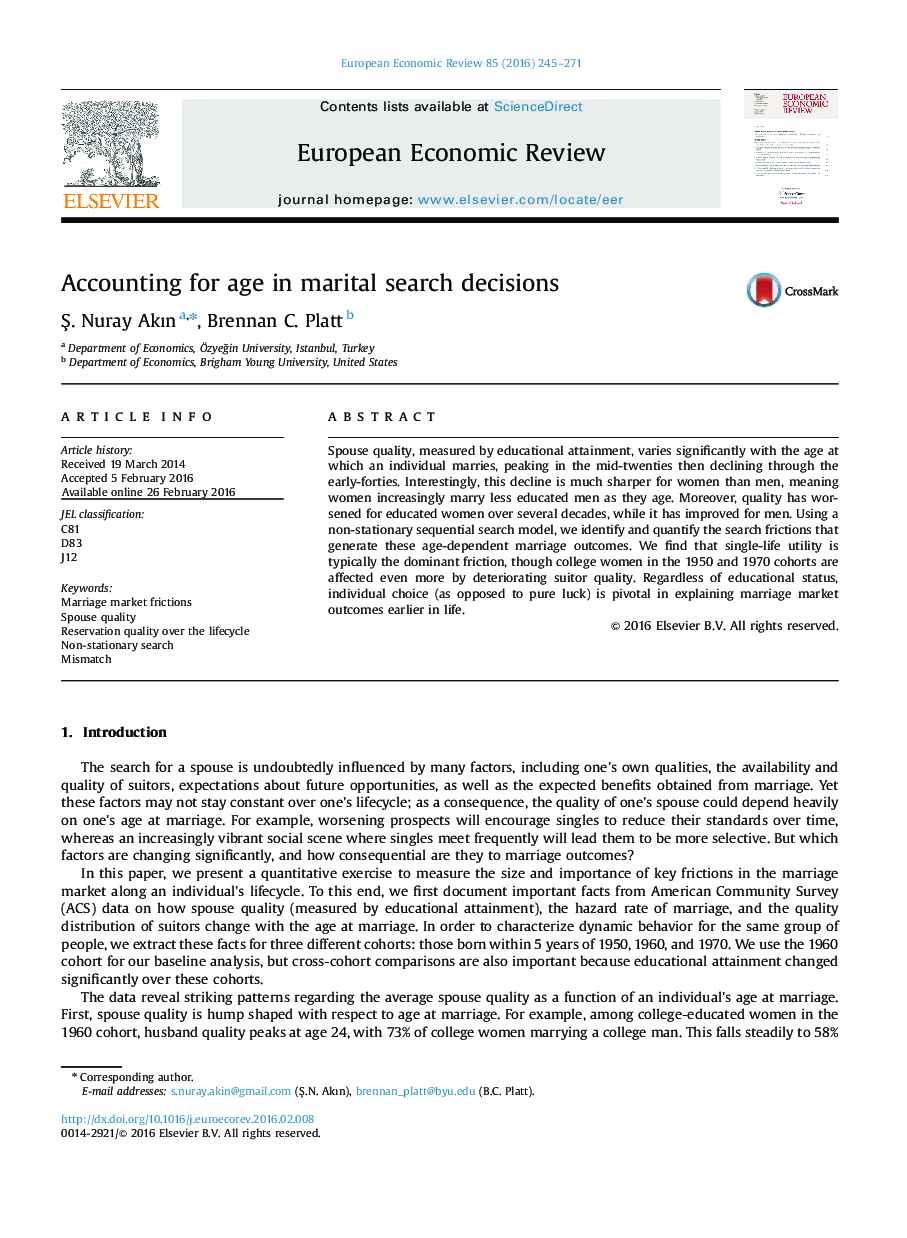| Article ID | Journal | Published Year | Pages | File Type |
|---|---|---|---|---|
| 5066500 | European Economic Review | 2016 | 27 Pages |
Spouse quality, measured by educational attainment, varies significantly with the age at which an individual marries, peaking in the mid-twenties then declining through the early-forties. Interestingly, this decline is much sharper for women than men, meaning women increasingly marry less educated men as they age. Moreover, quality has worsened for educated women over several decades, while it has improved for men. Using a non-stationary sequential search model, we identify and quantify the search frictions that generate these age-dependent marriage outcomes. We find that single-life utility is typically the dominant friction, though college women in the 1950 and 1970 cohorts are affected even more by deteriorating suitor quality. Regardless of educational status, individual choice (as opposed to pure luck) is pivotal in explaining marriage market outcomes earlier in life.
